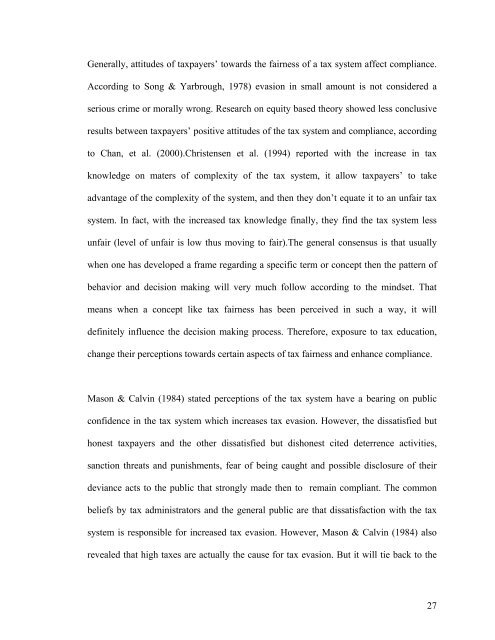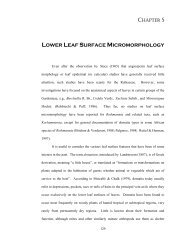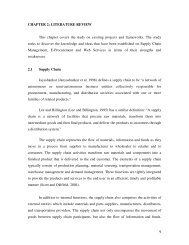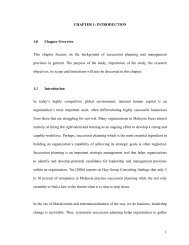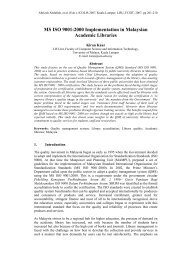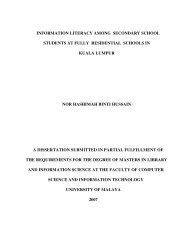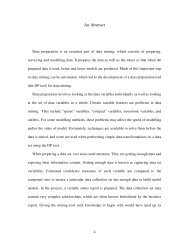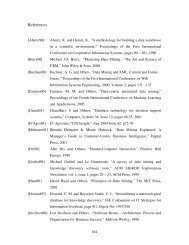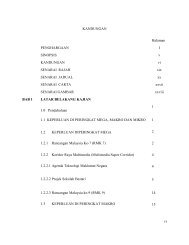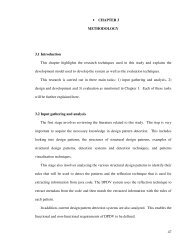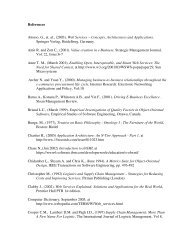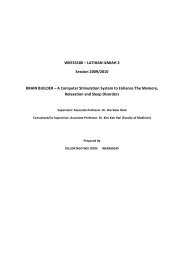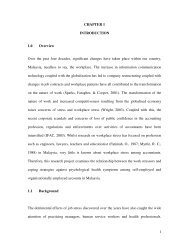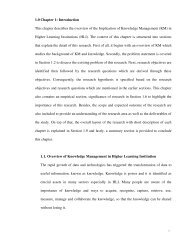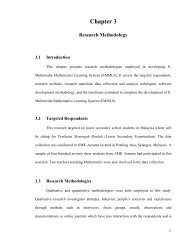1 CHAPTER 1: INTRODUCTION 1.0 Chapter ... - DSpace@UM
1 CHAPTER 1: INTRODUCTION 1.0 Chapter ... - DSpace@UM
1 CHAPTER 1: INTRODUCTION 1.0 Chapter ... - DSpace@UM
You also want an ePaper? Increase the reach of your titles
YUMPU automatically turns print PDFs into web optimized ePapers that Google loves.
Generally, attitudes of taxpayers’ towards the fairness of a tax system affect compliance.According to Song & Yarbrough, 1978) evasion in small amount is not considered aserious crime or morally wrong. Research on equity based theory showed less conclusiveresults between taxpayers’ positive attitudes of the tax system and compliance, accordingto Chan, et al. (2000).Christensen et al. (1994) reported with the increase in taxknowledge on maters of complexity of the tax system, it allow taxpayers’ to takeadvantage of the complexity of the system, and then they don’t equate it to an unfair taxsystem. In fact, with the increased tax knowledge finally, they find the tax system lessunfair (level of unfair is low thus moving to fair).The general consensus is that usuallywhen one has developed a frame regarding a specific term or concept then the pattern ofbehavior and decision making will very much follow according to the mindset. Thatmeans when a concept like tax fairness has been perceived in such a way, it willdefinitely influence the decision making process. Therefore, exposure to tax education,change their perceptions towards certain aspects of tax fairness and enhance compliance.Mason & Calvin (1984) stated perceptions of the tax system have a bearing on publicconfidence in the tax system which increases tax evasion. However, the dissatisfied buthonest taxpayers and the other dissatisfied but dishonest cited deterrence activities,sanction threats and punishments, fear of being caught and possible disclosure of theirdeviance acts to the public that strongly made then to remain compliant. The commonbeliefs by tax administrators and the general public are that dissatisfaction with the taxsystem is responsible for increased tax evasion. However, Mason & Calvin (1984) alsorevealed that high taxes are actually the cause for tax evasion. But it will tie back to the27


